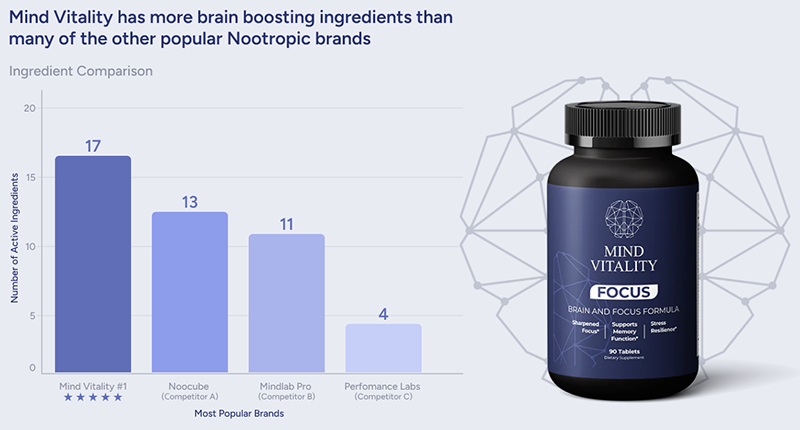
In the realm of brain and cognitive health, the foods we consume play a pivotal role not just in our physical well-being, but also in the intricate workings of our brain chemistry. Traditional fermented foods, a cornerstone of diets around the world for centuries, are emerging as potent allies in the quest to maintain and enhance mental health. These foods, teeming with beneficial microorganisms, have the potential to significantly impact our brain’s function, mood, and overall health through their complex biochemical properties and the pivotal role they play in gut-brain communication.
Contents
The Science of Fermentation
The process of fermentation is as ancient as human civilization itself, serving both as a method of preserving food and enhancing its nutritional and sensory properties.
Definition and Historical Significance of Fermentation
Fermentation is a metabolic process that produces chemical changes in organic substrates through the action of enzymes. In simpler terms, it’s the conversion of carbohydrates to alcohols and carbon dioxide or organic acids under anaerobic conditions (without oxygen). Historically, fermentation has been a crucial method for preserving food, enhancing its digestibility, and improving its taste and nutritional value. Cultures around the globe have been using fermentation for thousands of years, creating traditional foods like kimchi, sauerkraut, yogurt, and kefir that are still popular today.
Key Processes Involved in Fermentation
At its core, fermentation involves the breakdown of complex organic compounds into simpler ones through the action of microorganisms like bacteria, yeast, and molds. These microorganisms consume sugars and starches in food, producing lactic acid, alcohol, and carbon dioxide in the process.
This not only preserves the food by lowering its pH and preventing the growth of harmful bacteria but also creates unique flavors, textures, and nutritional profiles. The type of fermentation process—whether it’s lactic acid fermentation, alcoholic fermentation, or acetic acid fermentation—depends on the microorganisms involved and the conditions under which fermentation occurs.
The Role of Microorganisms in Fermentation
Microorganisms are the heart and soul of the fermentation process. Each type of microbe contributes differently, influencing the taste, texture, and health benefits of the fermented product. Lactic acid bacteria, for example, are primarily responsible for the fermentation of dairy, vegetables, and some types of meat, producing a tangy taste and improving the bioavailability of nutrients. Yeasts, on the other hand, are crucial for alcoholic fermentation, converting sugars into alcohol and carbon dioxide, as seen in the production of wine, beer, and bread.
The diversity of microorganisms involved in fermentation not only enriches the flavor and texture of food but also enhances its nutritional value. These beneficial microbes can produce vitamins, antioxidants, and bioactive compounds, contributing to the health-promoting properties of fermented foods. Moreover, the process of fermentation can break down antinutrients—compounds that interfere with the absorption of nutrients—thereby improving the overall nutritional quality of the food [1].
Nutritional Components of Fermented Foods and Their Impact on the Brain
The nutritional profile of fermented foods is rich and varied, offering a plethora of benefits not just for gut health but also for brain function. The impact of these foods on brain chemistry can be attributed to several key components that are either introduced or enhanced through the fermentation process.
Probiotics: Definition and Benefits for Brain Health
Probiotics, often referred to as “good” or “friendly” bacteria, are live microorganisms that provide health benefits when consumed in adequate amounts. These are predominantly found in fermented foods such as yogurt, kefir, sauerkraut, and kimchi. Probiotics play a crucial role in maintaining gut health, which is intrinsically linked to brain health through the gut-brain axis—a bidirectional communication pathway between the gastrointestinal tract and the brain.
Research has shown that probiotics can influence brain function and mental health in several ways. They help regulate the levels of neurotransmitters, such as serotonin and gamma-aminobutyric acid (GABA), which are key to regulating mood. Additionally, probiotics can modulate the body’s stress response, potentially reducing symptoms of anxiety and depression. The mechanism behind this involves the reduction of inflammation and the modulation of the stress hormone cortisol, both of which can have profound effects on brain health.
B-Vitamins: Their Role in Brain Function and Mental Health
Fermented foods are also a significant source of B-vitamins, which are vital for brain health. These vitamins, including B6, B12, and folate, play essential roles in brain function by supporting the nervous system’s health and aiding in the synthesis of neurotransmitters. B-vitamins are crucial for creating energy and repairing DNA, and they have been linked to a reduced risk of mood disorders and cognitive decline.
For example, vitamin B12, which is enriched in fermented dairy products and certain types of fermented plant-based foods, is directly involved in the production of serotonin and dopamine, neurotransmitters that influence mood and emotion. Deficiencies in B-vitamins have been associated with increased rates of depression and anxiety, highlighting the importance of these nutrients in maintaining mental health [2].
Bioactive Peptides: Influence on Neurotransmitter Activity
Another significant component of fermented foods is bioactive peptides, which are protein fragments with beneficial effects on body functions and health. These peptides can act on the brain directly or indirectly by influencing neurotransmitter activity, modulating brain function, and potentially enhancing mood and cognitive abilities.
Bioactive peptides derived from the fermentation process have been shown to have antioxidant, antimicrobial, and anti-inflammatory properties. They can cross the blood-brain barrier, a selective barrier that protects the brain from harmful substances, and exert neuroprotective effects. By reducing oxidative stress and inflammation in the brain, bioactive peptides can play a role in preventing neurodegenerative diseases and improving cognitive function.

The Gut-Brain Axis: Connecting Fermented Foods to Brain Chemistry
The concept of the gut-brain axis has revolutionized our understanding of the intricate relationship between digestive health and mental well-being. This axis represents the complex communication network linking the gastrointestinal tract and the brain, facilitating a bidirectional flow of information. Fermented foods, with their rich probiotic content, play a significant role in this dialogue, influencing brain chemistry and, consequently, affecting mood and cognitive function.
Overview of the Gut-Brain Axis
The gut-brain axis encompasses various physiological systems, including the central nervous system (CNS), the enteric nervous system (ENS), the immune system, and the endocrine (hormonal) system. Communication along this axis occurs through several pathways, including neural (via the vagus nerve), hormonal (via gut hormones), and immune (via cytokine signaling) routes. This extensive communication network ensures that changes in the gut, such as those induced by the intake of fermented foods, can have profound effects on brain function and vice versa.
Mechanisms of Communication Between the Gut and the Brain
The mechanisms by which the gut and brain communicate are multifaceted. One of the primary pathways involves the vagus nerve, which serves as a direct communication line allowing the gut to transmit signals to the brain. Probiotics found in fermented foods can influence the activity of the vagus nerve, thereby affecting mood and emotional well-being.
Another mechanism is through the production of short-chain fatty acids (SCFAs) by gut bacteria during the fermentation of dietary fibers. SCFAs, such as butyrate, propionate, and acetate, have been shown to influence brain chemistry, including reducing inflammation, modulating the stress response, and enhancing the formation of the blood-brain barrier.
Furthermore, the gut microbiota can influence the immune system’s response, affecting the brain’s inflammatory state. Chronic inflammation has been linked to several neurological disorders, indicating that a healthy, balanced gut microbiota is crucial for maintaining brain health [3].
The Impact of Gut Microbiota on Mood and Cognitive Functions
The composition of the gut microbiota is key to the gut-brain communication. An imbalance in gut bacteria, known as dysbiosis, has been associated with various mental health disorders, including depression, anxiety, and autism spectrum disorder. Fermented foods, by delivering a wide array of beneficial bacteria to the gut, can help restore balance and support a healthy gut microbiota.
Studies have demonstrated that probiotics can have antidepressant and anxiolytic effects, likely through their action on the gut-brain axis. By modulating the levels of neurotransmitters, reducing inflammation, and influencing the stress response, the microorganisms in fermented foods can play a significant role in improving mood and cognitive function.
Fermented Foods and Mental Health
The burgeoning field of nutritional psychiatry underscores the profound impact of our diet on mental health. Among the myriad dietary choices, fermented foods stand out for their unique benefits, attributed to their probiotic content and the fermentation-derived bioactive compounds.
Depression and Anxiety: The Role of Fermented Foods in Treatment and Prevention
Depression and anxiety are among the most prevalent mental health disorders worldwide, with conventional treatment options often limited by side effects and varying degrees of effectiveness. Emerging research points to fermented foods as potential natural remedies, thanks to their probiotic content and the positive impact they have on gut health.
Probiotics in fermented foods can alter the gut microbiota composition, leading to increased production of short-chain fatty acids (SCFAs) and modulation of the gut-brain axis. This can result in the elevated synthesis of neurotransmitters like serotonin and gamma-aminobutyric acid (GABA), which are crucial for mood regulation. Additionally, the anti-inflammatory properties of fermented foods can mitigate neuroinflammation, a condition often linked to the pathophysiology of depression and anxiety.
Studies have shown that regular consumption of fermented foods is associated with reduced symptoms of depression and anxiety. For instance, the traditional fermented milk product kefir has been highlighted for its potential to alleviate depressive-like behaviors in animal models, attributed to its probiotic content and the enhancement of the gut-brain axis [4].
Stress Response: How Fermented Foods Can Modulate Cortisol Levels
Stress is an inevitable aspect of modern life, with chronic exposure leading to various physical and mental health issues. The hypothalamic-pituitary-adrenal (HPA) axis plays a key role in the body’s stress response, regulating the production of cortisol, the primary stress hormone. Dysregulation of the HPA axis and elevated cortisol levels have been implicated in the onset of mood disorders and cognitive decline.
Fermented foods, through their effect on the gut microbiota, can modulate the body’s stress response. By influencing the production of SCFAs and interacting with the gut-brain axis, these foods can help in regulating the HPA axis and normalizing cortisol levels. This, in turn, can reduce the physiological impact of stress on the body and mind, potentially lowering the risk of stress-related mental health disorders.
Cognitive Function: The Potential of Fermented Foods to Enhance Memory and Focus
The impact of fermented foods on mental health extends beyond mood regulation to include cognitive functions such as memory, attention, and executive function. The probiotics found in these foods can influence cognitive health through multiple pathways, including the reduction of oxidative stress and inflammation in the brain, both of which are detrimental to cognitive performance.
Emerging evidence suggests that the regular intake of fermented foods can improve cognitive function, particularly in populations at risk for cognitive decline. For example, studies have indicated that older adults who consume fermented foods exhibit better cognitive performance than those who do not. This is attributed to the neuroprotective effects of probiotics, which include enhancing neuroplasticity and promoting the growth and survival of neurons.

Traditional Fermented Foods Around the World and Their Unique Benefits
Across the globe, traditional fermented foods are celebrated not only for their distinctive flavors and preservation benefits but also for their health-promoting properties. These foods, integral to various cultures, offer a diverse range of nutrients, probiotics, and bioactive compounds beneficial to both physical and mental health.
Kimchi and Its Antidepressant Properties
Kimchi, a staple in Korean cuisine, is a fermented vegetable dish usually made with napa cabbage and Korean radishes, combined with a variety of seasonings including chili pepper, garlic, ginger, and scallions. Beyond its role as a flavorful side dish, kimchi is rich in vitamins, minerals, and live cultures resulting from its fermentation process [5].
Research into kimchi’s health benefits has shown its potential in combating depression. The lactic acid bacteria produced during fermentation can influence gut health, which is closely linked to mood regulation through the gut-brain axis. These bacteria help modulate the gut microbiota, potentially reducing inflammation and influencing the production of mood-regulating neurotransmitters like serotonin.
Kefir and Its Role in Anxiety Management
Kefir, a fermented milk drink originating from the Caucasus region, is produced by adding kefir grains to milk. These grains are not cereal grains, but rather a complex symbiotic culture of lactic acid bacteria and yeasts. Kefir is celebrated for its probiotic content, surpassing that of many other fermented dairy products.
The consumption of kefir has been associated with improved anxiety symptoms. The probiotics in kefir can enhance gut health and communicate with the brain via the gut-brain axis, potentially lowering stress-induced responses and modulating the body’s stress response systems. Kefir’s rich content of B vitamins also plays a role in supporting brain health and managing anxiety.
Miso and Its Cognitive Enhancing Effects
Miso, a traditional Japanese seasoning produced by fermenting soybeans with salt and koji (a type of fungus), is a key ingredient in Japanese cooking, most famously used in miso soup. Miso is rich in essential nutrients, including proteins, vitamins, and minerals, and its fermentation process generates numerous bioactive compounds.
Studies suggest that miso can have protective effects against cognitive decline. The antioxidants and anti-inflammatory compounds produced during the fermentation process can help reduce oxidative stress and inflammation in the brain, factors associated with neurodegenerative diseases. Additionally, the probiotics in miso can support a healthy gut microbiota, further benefiting cognitive function through the gut-brain axis.
References
[1] Could eating more fermented foods help improve mental health?
[2] A Review of Fermented Foods with Beneficial Effects on Brain and Cognitive Function
[3] Potential neuroprotective effects of fermented foods and beverages in old age
[4] Fermented foods linked to mental health benefits through gut-brain connection
[5] Does a pickle a day keep Alzheimer’s away? Fermented food in Alzheimer’s disease: A review

